The New Frontier in Longevity Medicine
As lifespans increase worldwide, the focus is shifting beyond mere years lived towards maximizing healthspan—the period of life spent in good health. Proactive, data-driven healthcare is at the heart of this transition. Through continuous monitoring, predictive analytics, advanced biomarkers, and innovative therapies, healthcare is moving from reactive treatment to personalized prevention. This article explores how these transformative approaches are reshaping longevity medicine, enabling individuals to age healthier, delay disease onset, and ultimately extend their quality years of life.
The Impact of Proactive, Data-Driven Healthcare on Longevity
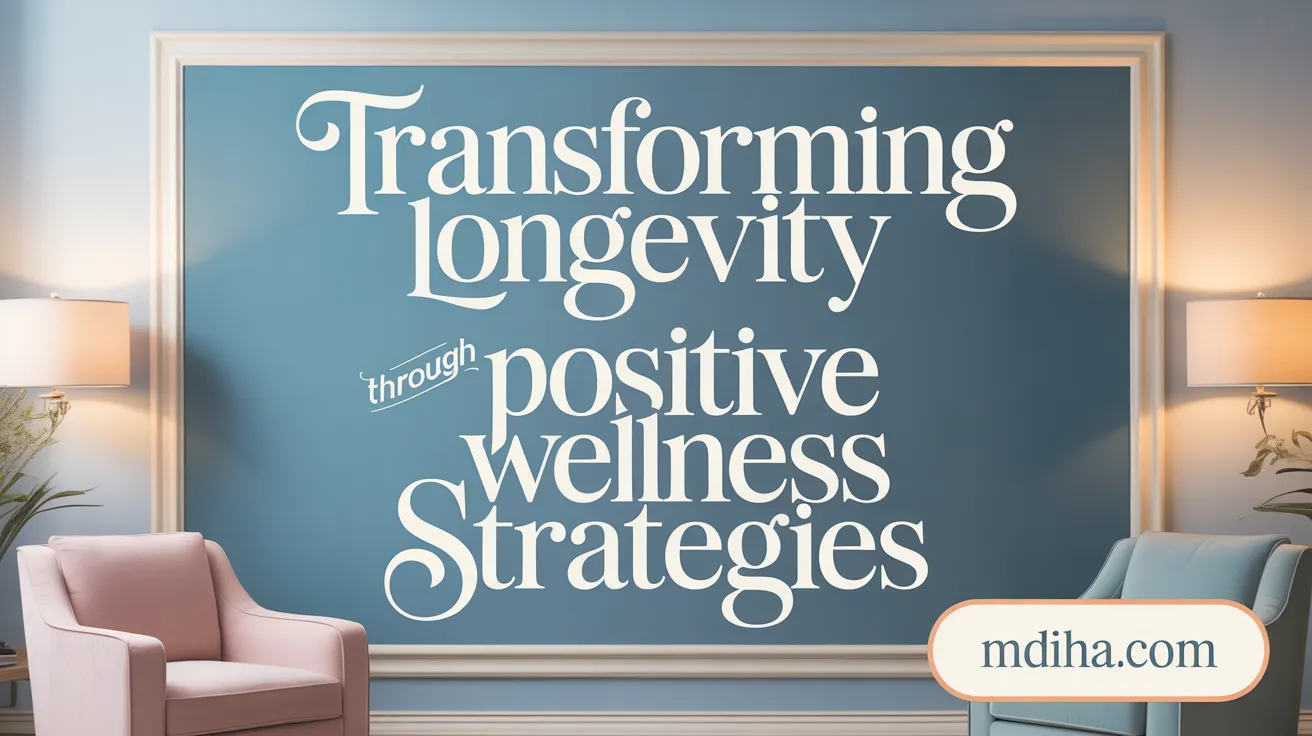
Introduction to proactive healthcare
Proactive healthcare emphasizes early detection and prevention over reactive treatment. By leveraging advanced data collection and analysis, it aims to identify health risks before symptoms appear, ultimately helping individuals maintain optimal health as they age.
Early detection of aging risks
One of the main advantages of data-driven approaches is the ability to uncover health issues at their earliest stages. Continuous monitoring through wearable devices, blood biomarker panels, and other digital tools can detect subtle deviations from normal health parameters, such as inflammation or hormonal imbalances. Detecting these changes early allows for timely interventions that can prevent or slow down the progression of chronic diseases, including arthritis, diabetes, and heart conditions.
Role of biomarkers and genetic testing
Biomarkers like inflammation levels, glycemic control markers, lipid profiles, and immune health indicators provide insight into biological aging. Comprehensive blood panels, combined with genetic tests including epigenetic methylation analysis, offer a detailed picture of an individual’s biological age versus chronological age. These insights enable personalized prevention plans tailored to each person's unique health profile, guiding decisions on lifestyle adjustments and therapeutic strategies.
Lifestyle modifications and pharmacological interventions
Based on biomarker and genetic data, personalized lifestyle changes—such as diet, exercise, and sleep optimization—can substantially influence aging trajectories. Additional therapies, including anti-aging pharmacological agents like senolytics, NAD+ boosters, metformin, or caloric modulation, are being researched or utilized to support longevity. Emerging treatments like stem cell infusions and peptides seek to target fundamental aging mechanisms, offering potential avenues for extending healthspan.
Shifting healthcare from reactive to proactive
This paradigm shift is supported by continuous health monitoring through wearable sensors and AI-powered analytics. These technologies enable clinicians to create individualized health baselines, detect deviations in real-time, and implement preemptive actions. The integration of digital health platforms, centralized dashboards, and predictive analytics helps streamline care, reduce hospitalizations, and lower healthcare costs.
| Aspect | Traditional Care | Data-Driven, Proactive Care | Additional Details |
|---|---|---|---|
| Timing | Mostly episodic & reactive | Continuous & preventive | Regular checkups vs. real-time monitoring |
| Data Type | Retrospective medical history | Real-time physiological and behavioral metrics | Lab tests & wearable data |
| Outcomes | Symptom management | Disease prevention & health promotion | Reduced costs & improved quality of life |
Proactive, data-driven healthcare is transforming the approach to aging and longevity. By focusing on early detection and personalized intervention, it promises to extend both lifespan and healthspan, helping individuals enjoy a higher quality of life well into old age.
Harnessing Predictive Analytics, Biomarkers, Diagnostics, and Advanced Therapies to Extend Healthspan
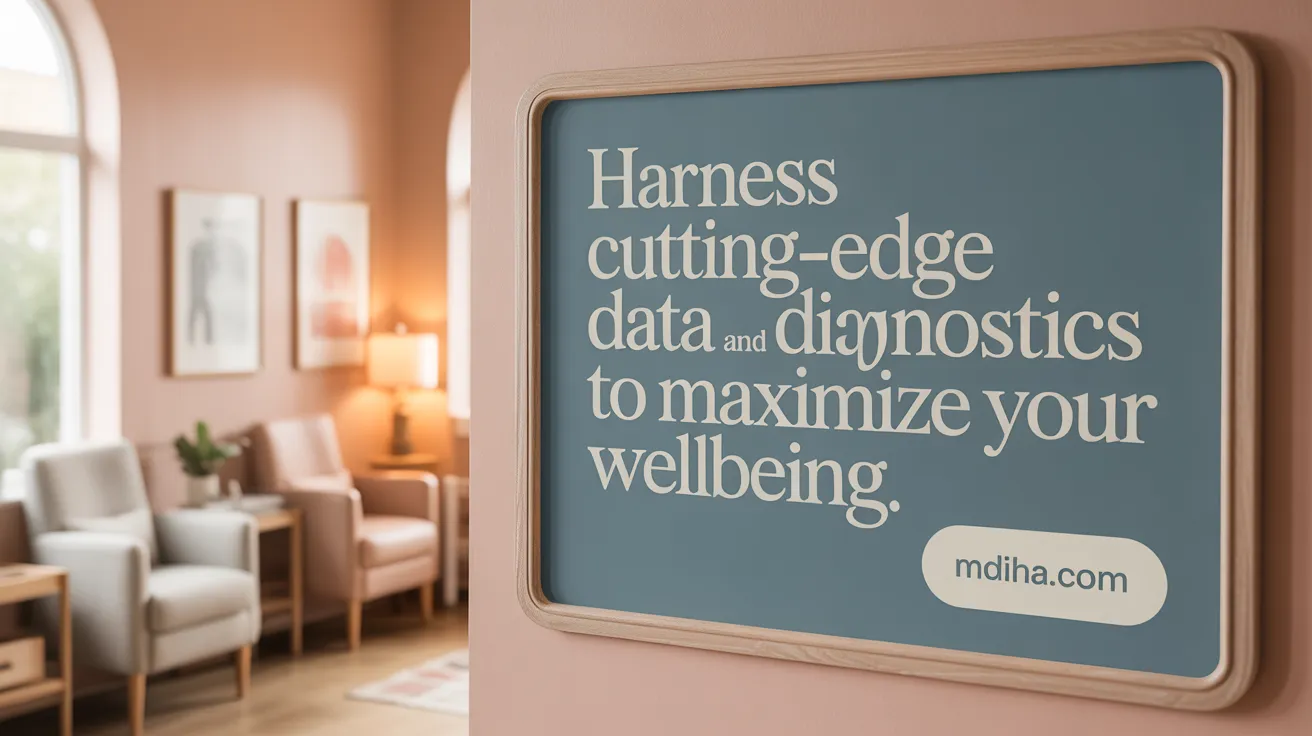
What role do predictive analytics, biomarkers, diagnostics, and advanced therapies play in extending healthspan?
Predictive analytics, biomarkers, diagnostics, and advanced therapies work synergistically to promote longer, healthier lives by focusing on early detection and personalized treatment approaches.
AI and data analytics analyze extensive health information, including genomics, real-time biomarker data, and lifestyle factors, to forecast health risks such as cardiovascular disease, diabetes, and other chronic conditions. These insights enable healthcare providers to intervene proactively, often before symptoms emerge.
Comprehensive biomarker assessment is critical. Blood tests measuring inflammation, hormonal status, glycemic control, lipids, and immune markers paint a full picture of biological aging and health risks. Such detailed profiles guide tailored prevention strategies, ensuring interventions target specific biological changes.
Advanced diagnostics, including epigenetic methylation testing, help determine biological age more accurately than traditional chronological age. This information helps in monitoring the pace of aging and adapting therapies like senolytics, NAD+ boosters, or caloric modulation for individual needs.
Innovative treatments like stem cell infusions, peptides, and medications such as metformin or rapamycin are being explored and applied for their potential anti-aging effects. These therapies aim to repair, regenerate, and slow down age-related deterioration.
Personalized interventions leverage data from wearable devices, digital biomarkers, and environmental inputs, allowing real-time monitoring and timely adjustments. Such proactive management ensures early detection of deviations from baseline health, reducing the likelihood of severe disease development.
The integration of these elements into centralized platforms and AI-driven dashboards enhances clinicians' capacity to monitor biological aging trajectories accurately. This facilitates the design of targeted prevention and therapy plans, ultimately extending healthspan and boosting quality of life.
| Aspect | Description | Benefits |
|---|---|---|
| Predictive Analytics | Uses AI to analyze health data for risk prediction | Proactive intervention, personalized care |
| Biomarker Panels | Include inflammation, hormones, glycemic markers | Full health assessment, early issue detection |
| Diagnostics | Epigenetic age, telomere length, regenerative capacity | Precise aging assessment |
| Therapies | Stem cells, peptides, medications | Promote regeneration, delay aging |
| Data Integration | Wearables, genomic data, environmental factors | Real-time monitoring, customized strategies |
In summary, the combination of predictive analytics, advanced diagnostics, biomarker assessments, and innovative therapies forms the backbone of modern longevity medicine. This multi-faceted approach enables a shift from reactive treatment to a proactive, individualized pathway towards healthy aging.
Scientific Evidence Supporting Proactive, Data-Driven Care for Aging Populations
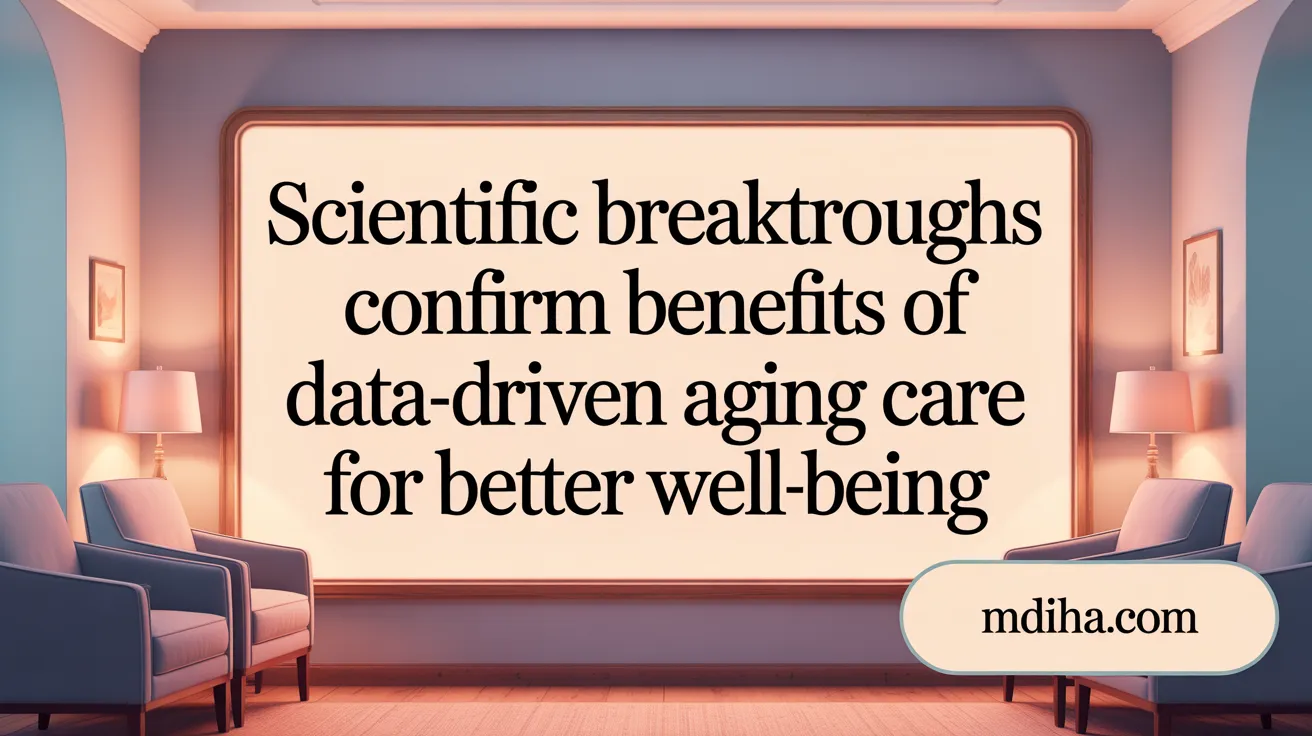
What scientific evidence supports innovative health strategies focused on proactive, data-driven care for aging populations?
Recent research and technological developments strongly back the adoption of proactive, data-powered healthcare for older adults. Wearable devices and remote monitoring tools provide continuous streams of vital health data, allowing for early detection of issues such as inflammation, hormonal imbalances, or cardiovascular changes. These technologies help clinicians identify potential health problems before symptoms manifest, enabling timely interventions that can slow disease progression.
Clinical studies underline the effectiveness of ongoing health tracking. For example, long-term studies have shown that regular monitoring of biomarkers—like glycemic control, inflammation markers, and circadian rhythms—correlates with reduced hospitalizations and better management of age-related diseases. Advanced data science and artificial intelligence (AI) further enhance personalized treatments, offering real-time insights that help tailor therapies to individual needs.
AI-driven platforms integrate data from wearables, genetic tests, and electronic health records, supporting more accurate diagnoses and prevention strategies. These innovations have shown promise in clinical settings, improving health outcomes and sustaining independence among elderly populations.
However, challenges such as the digital divide still exist. Ensuring equitable access to these advanced technologies remains essential for maximizing benefits across diverse socioeconomic groups. Initiatives focus on making these solutions affordable and user-friendly.
Longitudinal studies also demonstrate that continuous health monitoring can significantly improve aging trajectories. By tracking changes over time, clinicians can develop personalized aging profiles, guiding interventions such as senolytics, NAD+ support, or caloric modulation, which are showing potential in extending healthspan.
In conclusion, the scientific community recognizes that integrating wearable technology, AI, and comprehensive health data into routine care offers a transformative approach for aging populations. These innovations not only help prevent disease but also promote healthier, more independent aging, ultimately reducing healthcare costs and improving quality of life for older adults.
Personalized Data-Driven Approaches: Mechanisms Influencing Healthy Aging and Lifespan

How do personalized, data-driven approaches influence healthy aging and lifespan?
Personalized health strategies powered by data-driven insights have revolutionized how we approach aging and longevity. By analyzing a broad spectrum of biological and lifestyle data, these approaches enable tailored prevention, diagnosis, and treatment plans suited to individual needs.
One of the main strengths is the use of digital technologies such as wearable devices, mobile health apps, and advanced biomarker panels. These tools facilitate continuous, real-time health monitoring, allowing for early detection of deviations from normal function. For instance, sensors can track vital signs, inflammation markers, and glycemic control data, providing insights that help detect potential health issues early.
AI and digital twin technologies further enhance predictive capabilities. They analyze integrated health data to generate personalized recommendations for diet, exercise, and lifestyle modifications. This tailored guidance promotes healthier behaviors, reduces the risk of developing age-related chronic diseases like diabetes and cardiovascular conditions, and supports successful aging.
Precision health tools optimize treatment efficacy and minimize adverse effects. For example, genetic and biomarker information can guide the appropriate use of medications, such as senolytics or NAD+ boosters, to delay cellular aging processes.
Despite these innovations, challenges such as data privacy, interoperability, and access remain. However, the ongoing integration of AI, continuous monitoring, and personalized analytics promises a future where aging is healthier, longer, and more personalized. This holistic approach supports not just extending lifespan but enhancing healthspan—the period of life spent in good health.
| Technology/Method | Function | Impact |
|---|---|---|
| Wearables & Digital Biomarkers | Continuous health data collection | Early detection of health issues |
| AI & Digital Twins | Predictive health modeling & personalized recommendations | Preemptive interventions & lifestyle optimization |
| Genomics & Epigenetics | Biological age estimation & risk assessment | Tailored prevention & therapies |
Through these strategies, personalized, data-driven healthcare is transforming aging from reactive to proactive, fostering longer, healthier lives.
Transformative Role of Continuous Monitoring, AI, and Epigenetic Testing in Longevity Medicine
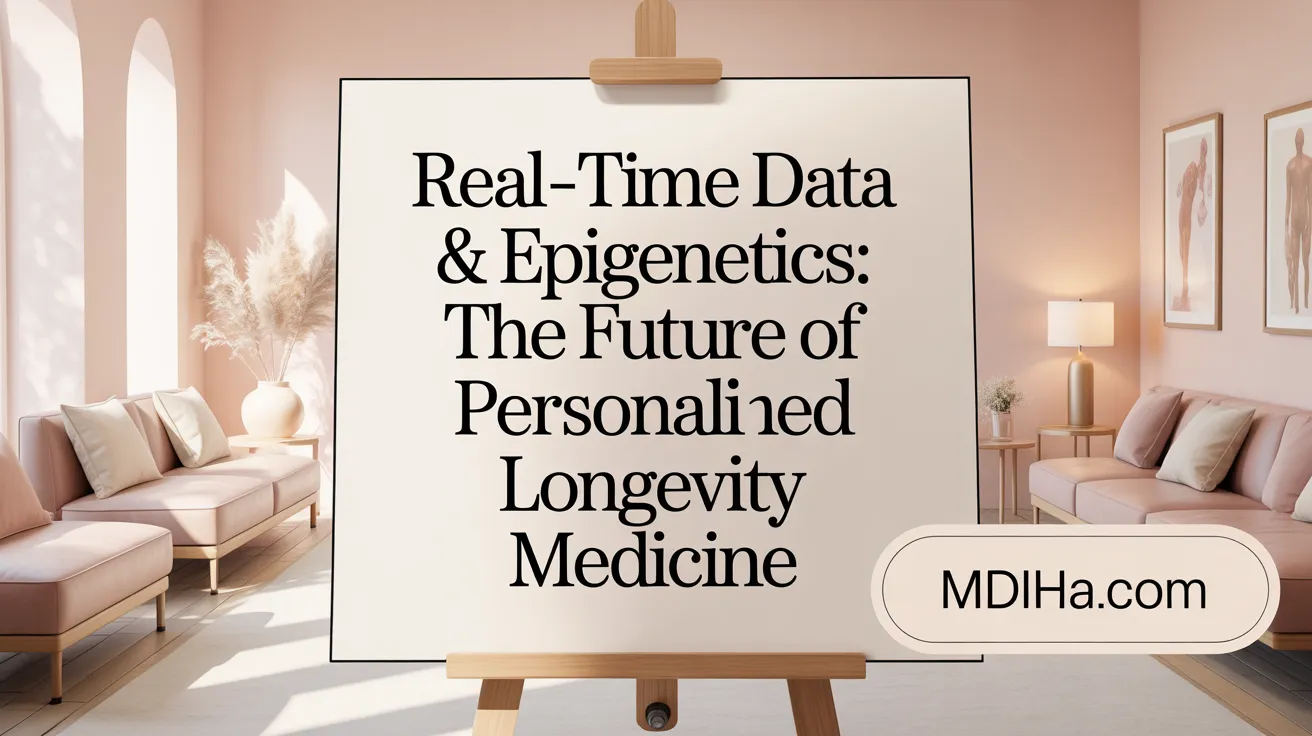
How do real-time data and dynamic assessments shape modern longevity strategies?
Continuous health monitoring through wearable devices offers real-time insights into vital signs, physiological metrics, and behavioral patterns. This ongoing data collection enables a proactive approach, allowing clinicians to detect deviations from an individual’s baseline health early, before symptoms emerge. Dynamic assessments, powered by continuous streams of data, foster personalized health plans that adapt in real-time, optimizing interventions to maintain and improve healthspan.
What advancements have been made in developing aging clocks?
Aging clocks are sophisticated models that estimate biological age based on various biomarkers. Recent developments include deep aging clocks, which utilize machine learning algorithms to analyze complex biological signals. These clocks integrate data from genomics, epigenetics, proteomics, and metabolomics to provide more accurate and personalized estimates of an individual’s biological aging trajectory. Such tools are critical for evaluating the effectiveness of anti-aging interventions.
How do epigenetic biomarkers serve in assessing aging?
Epigenetic changes, particularly DNA methylation patterns, are reliable indicators of biological age—forming the basis of epigenetic clocks. These biomarkers reflect the cumulative effect of genetic and environmental factors on gene regulation. Epigenetic testing can predict disease risks and mortality more accurately than traditional age measures, enabling targeted preventive treatments. Moreover, shifts in methylation patterns can also indicate the impact of specific therapies aimed at modifying aging processes.
In what ways is AI enabling drug discovery for aging-related therapies?
Artificial intelligence accelerates the identification and development of geroprotectors, including senolytics, NAD+ boosters, and novel compounds targeting aging pathways. Machine learning models analyze vast datasets from biological experiments, genetic information, and clinical trials to identify promising drug candidates and predict their efficacy and safety. AI also models complex biological processes involved in aging, facilitating rapid validation of potential therapies and personalized treatment plans.
How is the shift from reactive to proactive longevity care achieved?
This transition is driven by integrating continuous, multi-source data with advanced analytics and personalized medicine. Rather than waiting for symptoms to appear, clinicians monitor biological age indicators and health risks in real-time, intervening early with tailored therapies. Technologies such as genomics, wearable sensors, and AI-driven platforms enable early detection of health deterioration and support customized preventative strategies. The result is a healthcare model focused on prevention, longevity, and quality of life.
| Technology / Concept | Function | Impact on Longevity Medicine |
|---|---|---|
| Wearable Devices | Continuous data collection | Real-time health insights |
| Aging Clocks | Estimation of biological age | Personalized aging profiles |
| Epigenetic Biomarkers | Methylation patterns | Disease prediction & targeted therapy |
| AI for Drug Discovery | Accelerated research & prediction | Rapid development of anti-aging therapies |
| Dynamic Assessments | Adaptive health strategies | Improved healthspan and lifespan |
These innovations exemplify a future where longevity medicine is highly personalized, dynamic, and preventative, leveraging advanced data analytics and molecular biomarkers—ultimately aiming to extend healthy years of life.
Best Practices and Benefits of Implementing Proactive, Data-Driven Care in Aging Populations

What are the benefits and best practices for implementing proactive, data-driven care to improve clinical outcomes related to aging?
Adopting a proactive, data-driven approach in healthcare for aging populations brings substantial advantages. It enables early detection of health issues before symptoms manifest, allowing interventions that can slow or prevent disease progression. This approach also facilitates personalized treatment plans tailored to individual biological and behavioral data, ultimately enhancing quality of life and reducing hospitalizations.
Effective strategies include integrating various data sources such as wearable devices, genomic information, digital biomarkers, and environmental data. These sources provide a comprehensive view of each patient’s health, making it possible to customize prevention and treatment plans. To maximize benefits, ensuring the accessibility of these technologies for older adults is crucial. This entails designing user-friendly interfaces and providing ongoing education and support to address varying levels of digital literacy.
Leveraging advanced analytics—descriptive, predictive, and prescriptive—guides clinical decisions and early intervention. For example, analytics can identify biomarkers indicating inflammation or insulin resistance, forecast disease risks, and recommend preemptive actions. Combining these data-driven insights with frameworks like the NASSS model and WHO strategies ensures ethical, scalable, and patient-centered deployment.
Sustainable success in proactive care depends on continuous evaluation of programs, engagement with patients, and collaboration among healthcare providers, technologists, and policymakers. Regular feedback loops, comprehensive training, and iterative technology improvements help embed these practices into standard care, promoting healthier aging and better long-term outcomes for older adults.
Latest Developments in Longevity-Focused Healthcare Driven by Data and Analytics
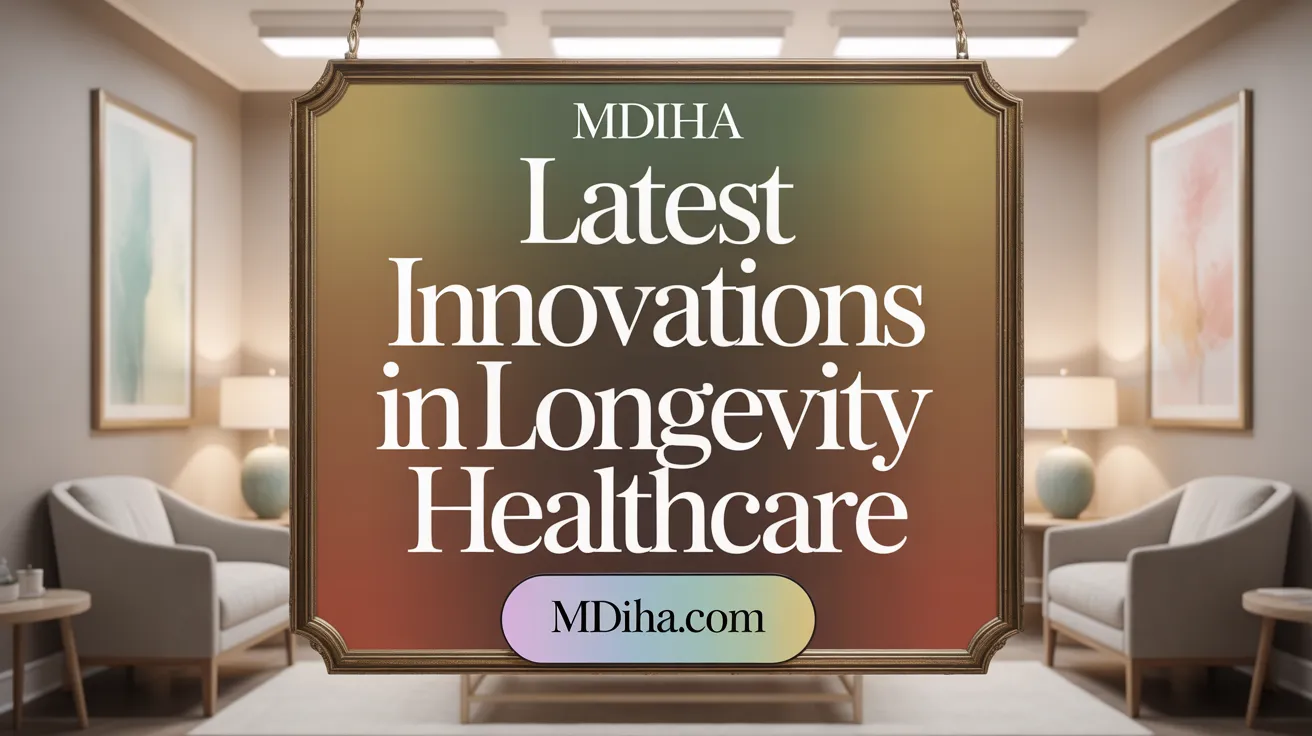
What are the latest methodologies and developments in longevity-focused healthcare driven by data and analytics?
Recent advances in longevity-centered healthcare are heavily reliant on integrating diverse data sources and employing cutting-edge technologies. One significant approach is the use of multi-omics profiling, which combines genomics, proteomics, and metabolomics. This comprehensive view helps researchers and clinicians better understand the biological aging process and identify personalized intervention points.
Artificial intelligence (AI) and machine learning (ML) are transforming how healthcare providers process and analyze large datasets. These tools enable more accurate risk prediction, early diagnosis of age-related diseases, and even novel drug discovery. For example, AI models help create biological age clocks based on epigenetic methylation data, which can indicate how quickly an individual is aging and guide targeted anti-aging therapies.
Digital biomarkers, collected via wearable devices, are central to real-time health monitoring. These metrics include heart rate variability, activity levels, sleep patterns, and other physiological signals. Wearables allow for early detection of deviations from normal health baselines, prompting preemptive interventions. Biomarkers like glycan profiling and genetic testing further enhance the ability to predict risks such as cognitive decline, cardiovascular disease, or diabetes.
Emerging targeted therapies, such as senolytics—which clear senescent cells—and gene editing technologies are paving the way for delaying or reversing aging processes. These therapies are often guided by insights derived from integrated data analytics.
On the policy side, governments and industry leaders are establishing frameworks to facilitate data sharing and interoperability. This is crucial for comprehensive health management, allowing digital health platforms to aggregate data from labs, wearables, electronic health records (EHRs), and environmental sensors.
The overall goal of these developments is to move toward a preventive, personalized healthcare model. By leveraging multi-omics, AI, digital biomarkers, and innovative therapies, healthcare is becoming more proactive, potentially extending lifespan and healthspan while reducing long-term costs.
The Future of Longevity Lies in Data-Driven Proactive Care
Proactive, data-driven care is redefining the landscape of longevity medicine by merging technological innovation with personalized health strategies. The integration of continuous monitoring, AI-driven analytics, and advanced biomarkers empowers both clinicians and patients to anticipate health changes, customize interventions, and extend quality years of life. Despite challenges in accessibility and implementation, the evidence underscores transformative benefits in clinical outcomes, healthcare sustainability, and patient empowerment. As research and technology evolve, embracing these data-centric approaches will be essential for unlocking the full potential of healthy aging and truly changing the longevity game.
References
- Taking The Wheel: A Proactive Approach to Improving ...
- Personalized Health Data: The Future of Longevity and ...
- Reactive vs Preventive Health Care: Data-Driven Wellness
- Beyond Anti-Aging: How Thailand's Data-Driven Longevity ...
- The role of data-driven initiatives in enhancing healthcare ...
- Digital Anti-Aging Healthcare: An Overview of the Applications ...
- How Does Precision Health Support Healthy Aging?
- Precision Medicine: Personalizing Healthcare by Bridging ...
